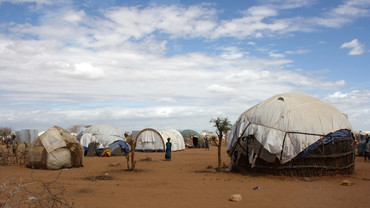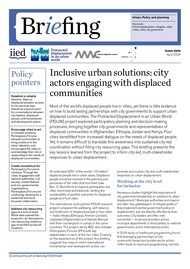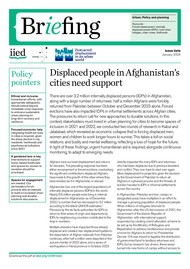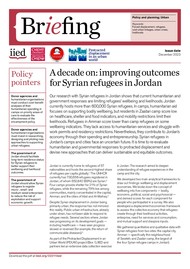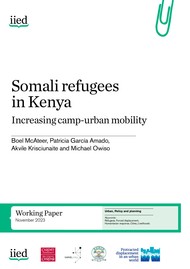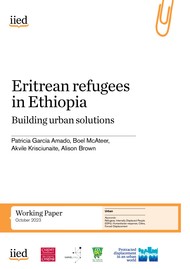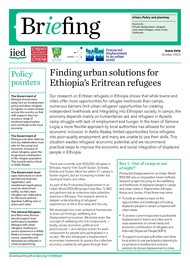Exploring new approaches to urban refugee hosting in Kenya
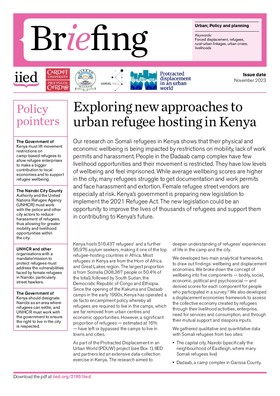
IIED's research on Somali refugees in Kenya shows that their physical and economic wellbeing is being impacted by restrictions on mobility, lack of work permits and harassment. People in the Dadaab camp complex have few livelihood opportunities and their movement is restricted. They have low levels of wellbeing and feel imprisoned. While average wellbeing scores are higher in the city, many refugees struggle to get documentation and work permits and face harassment and extortion. Female refugee street vendors are especially at risk.
But Kenya is at a turning point with regard to refugee policy. New legislation, being prepared by Kenya’s government to implement the 2021 Refugee Act, could be an opportunity to improve the lives of thousands of refugees and support them in contributing to Kenya’s future.
Cite this publication
Available at https://www.iied.org/21951iied
